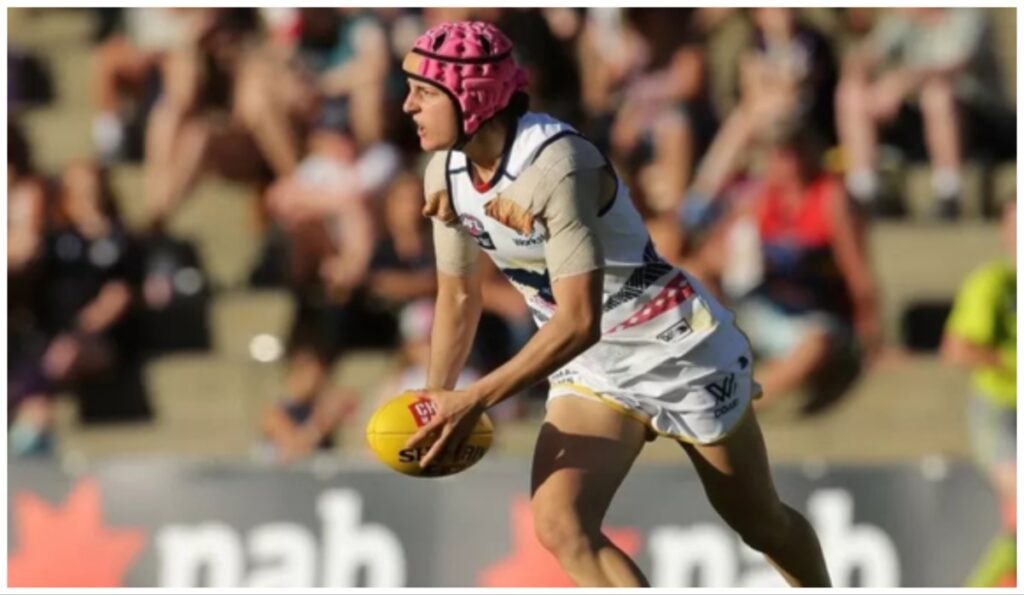American parents have become more concerned with their children playing contact sports such as football since Dr. Bennet Omalu published the first evidence of chronic traumatic encephalopathy (CTE) in 2005 after he studied former Pittsburgh Steeler Mike Webster. It is a progressive degenerative brain disease caused by repeated blows to the head.

The concern may continue to grow with the latest CTE news. Heather Anderson, an Australian professional female football player, was recently diagnosed with CTE. She became the first female in any sport to be ever diagnosed with the disease.
Who Is Heather Anderson?
According to the Springer Medical Journal, Anderson started playing football at the age of five and played for a total of 18 years. She played professionally in the Australian Football League Women’s for the Adelaide Crows in 2017 but retired after just on season because of a musculoskeletal injury. The injury causes a disorder to the muscles, nerves, tendons, joints, cartilage and spinal discs, according to the Centers for Disease Control and Prevention website.
“She was an avid footballer from 5 years of age, with a total contact sport career length of 18 years. She played across two codes, Australian rules football and rugby league, and participated in both simultaneously for approximately 2 years,” the Springer Medical Journal said. “By her mid-teens, she had progressed to playing representative women’s Australian rules football, before entering that sport professionally in her early twenties. She retired after one professional season due to musculoskeletal injury.”
Anderson was only 28 years old when she took her own life last November. Her parents said they saw no signs of a change in the former athlete’s behavior. The family donated Anderson’s brain to the Australian Sports Brain Bank after her death.
First Ever
Researchers from the Australian Sports Brain Bank gave a warning sign to females participating in contact sports such as women football leagues and rugby.
“She is the first female athlete diagnosed with CTE, but she will not be the last,” wrote researchers in Henderson’s report.
Dr. Robert Cantu, co-founder and medical director of the Concussion Legacy Foundation, urged for the acceleration of research on CTE in women. Before Anderson, the disease was found only in women who didn’t play sports.
As for Anderson’s death, it is still being investigated but it is suspected to be a suicide due to the circumstances surrounding her death.



